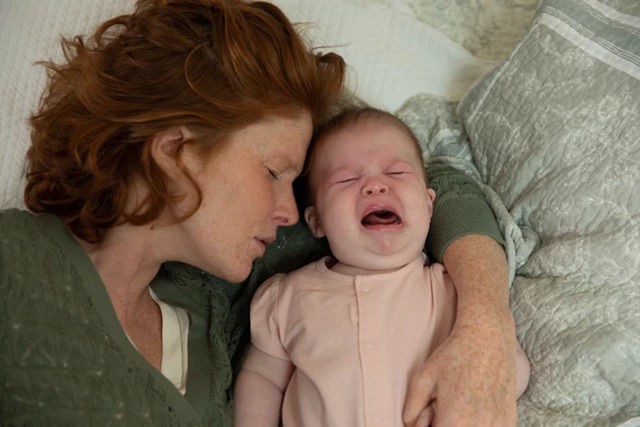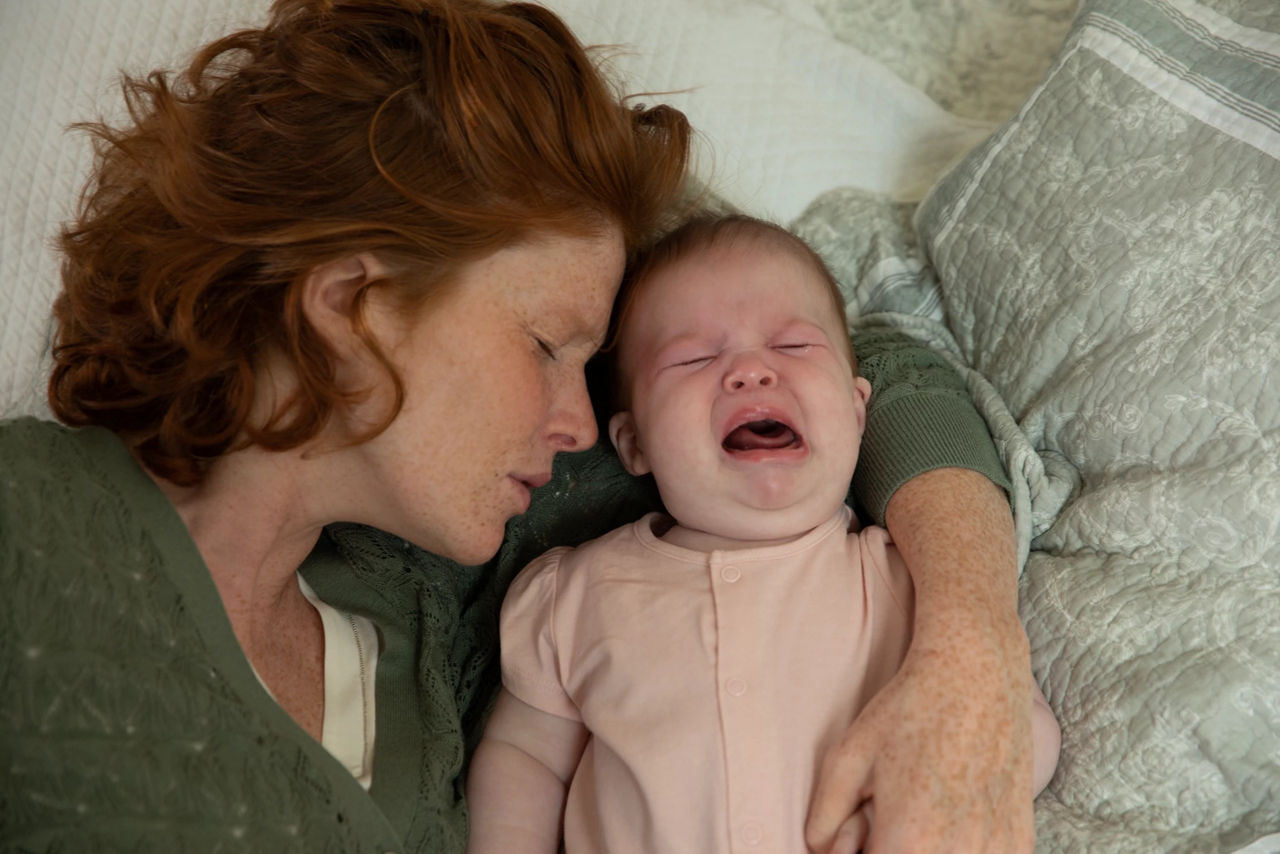Colic is the most common feeding problem experienced by babies. It occurs in 1 in 4 babies. It is comforting to know that if your baby does go through bouts of crying, they will grow out of it before long. It is also reassuring to know that colic has no long term effect on your baby's health, babies with colic develop normally and just as healthy as other babies.
Top tips to comfort your colicky baby

If your baby has colic, don’t worry you are not on your own.
Why does my baby not stop crying?
The reason your baby may be suffering from colic is not fully understood but possible causes may be that they have trapped wind, they may also have sensitivities to milk as your baby’s digestive system is very small and still developing.
Non-dietary treatments for colic
- Create a soothing atmosphere by turning off the TV and radio, play soft music or white noise like the sound of the tumble dryer, hoover or washing machine.
- Give your baby a warm bath while gently massaging their tummy in a clockwise position.
- Try different winding techniques and use the one that works best for your baby.
- Push your baby in a pram or place them in a car seat and go for a drive.
- Swaddling your baby in a warm blanket can work wonders when settling a colicky baby
- If you are breastfeeding, try and limit foods like chocolate caffeine or spicy food.
- If you are bottlefeeding and symptoms persist, speak to your healthcare professional. A specialised formula may be advised.
Symptoms should subside by the time your baby is 3 or 4 months old, by this time their digestive system will have matured, however this can seem like a long way away! Try and get some help from your partner, family and friends when you need to. Your public health nurse or doctor may also be able to help if symptoms persist.
Do call our Careline team if you’ve got any further questions about colic – one of our expert baby feeding advisors will be happy to help you.
Related articles

Get in touch with our Careline experts
Our nutritionists and feeding advisors are always on hand to talk about feeding your baby. So if you have a question, just get in touch
Important notice
Breastfeeding is best for babies and provides many benefits. It is important that, in preparation for and during breastfeeding, you eat a varied, balanced diet. Combined breast and bottle feeding in the first weeks of life may reduce the supply of your own breastmilk, and reversing the decision not to breastfeed is difficult. The social and financial implications of using an infant formula should be considered. Improper use of an infant formula or inappropriate foods or feeding methods may present a health hazard. If you use an infant formula, you should follow manufacturer’s instructions for use carefully – failure to follow the instructions may make your baby ill. Always consult your doctor, midwife or health visitor for advice about feeding your baby.




